Africa’s Most Advanced EV Market, Ethiopia: Insights from On-Site Visits
DFP participated in and spoke at the Africa E-Mobility Week 2025 (AEW2025), held in Addis Ababa, Ethiopia, from October 14–16.
AEW2025, co-hosted by the Africa E-Mobility Alliance (AfEMA) and the United Nations Environment Programme (UNEP), aims to accelerate the mobility transition across the African continent. The event gathered over 350 representatives from more than 33 countries, including global corporations, startups, investors, and policymakers committed to decarbonization. DFP has established a strategic partnership with AfEMA and, at UNEP’s invitation, participated in a panel discussion focused on investment promotion. In addition to attending the conference, DFP conducted on-site visits to key EV facilities and engaged in extensive networking with local stakeholders.
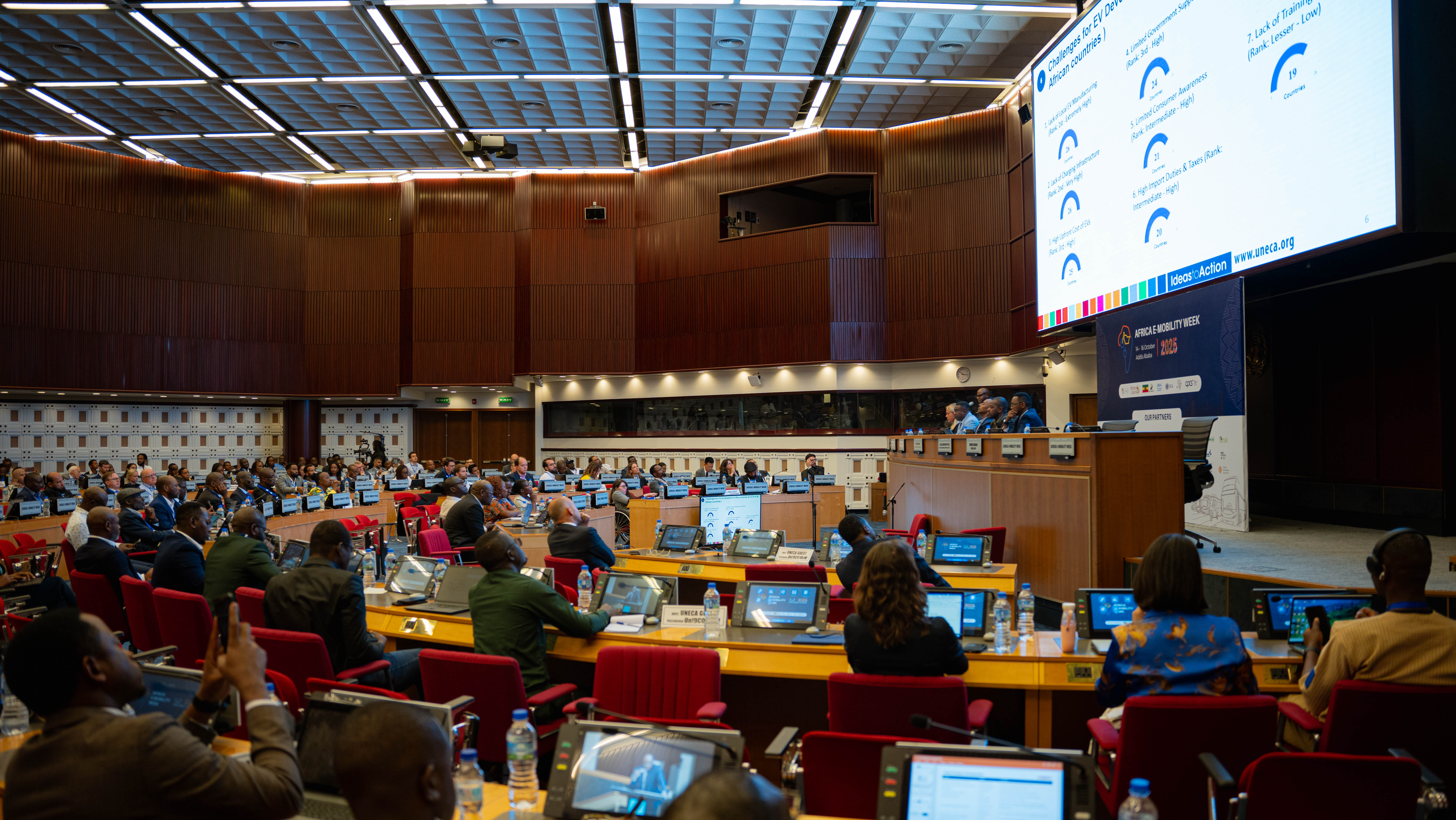
Background
Ethiopia has long faced a trade deficit, with annual petroleum imports reaching approximately USD 3.5 billion—nearly equivalent to the country’s total exports of USD 3.8 billion. Reducing energy dependency has become a top national priority. In January 2024, the Ethiopian government implemented a groundbreaking policy banning the import of new vehicles other than EVs. Nearly two years into its implementation, challenges such as safety concerns and regional disparities remain, yet EV adoption is rapidly progressing, particularly in urban areas. According to the Ministry of Transport and Logistics, Addis Ababa hosts approximately 1.2 million passenger vehicles, of which over 100,000 are EVs, with a target of 500,000 within the next decade. Ethiopia is increasingly recognized as a leading example of EV transition in Africa, drawing attention for both its policy and industrial initiatives.
Accelerating Investment in Africa’s EV Market
Amid rising EV demand across Africa, investment in the sector continues to grow, with total investments projected to exceed USD 1 billion by 2030. Against this backdrop, our CEO, Mr. Kohei, participated in a panel discussion addressing current investment trends and strategies to scale financing. He engaged with representatives from UNEP, rapidly growing startups such as BasiGo and Ampersand, the European Bank for Reconstruction and Development (EBRD), and South Africa’s Industrial Development Corporation (IDC), exploring the future of Africa’s EV industry. Mr. Kohei emphasized the importance of fostering “Made-in-Africa” industries and highlighted that sustainable growth depends on comprehensive support for local industries and collaboration with global enterprises.
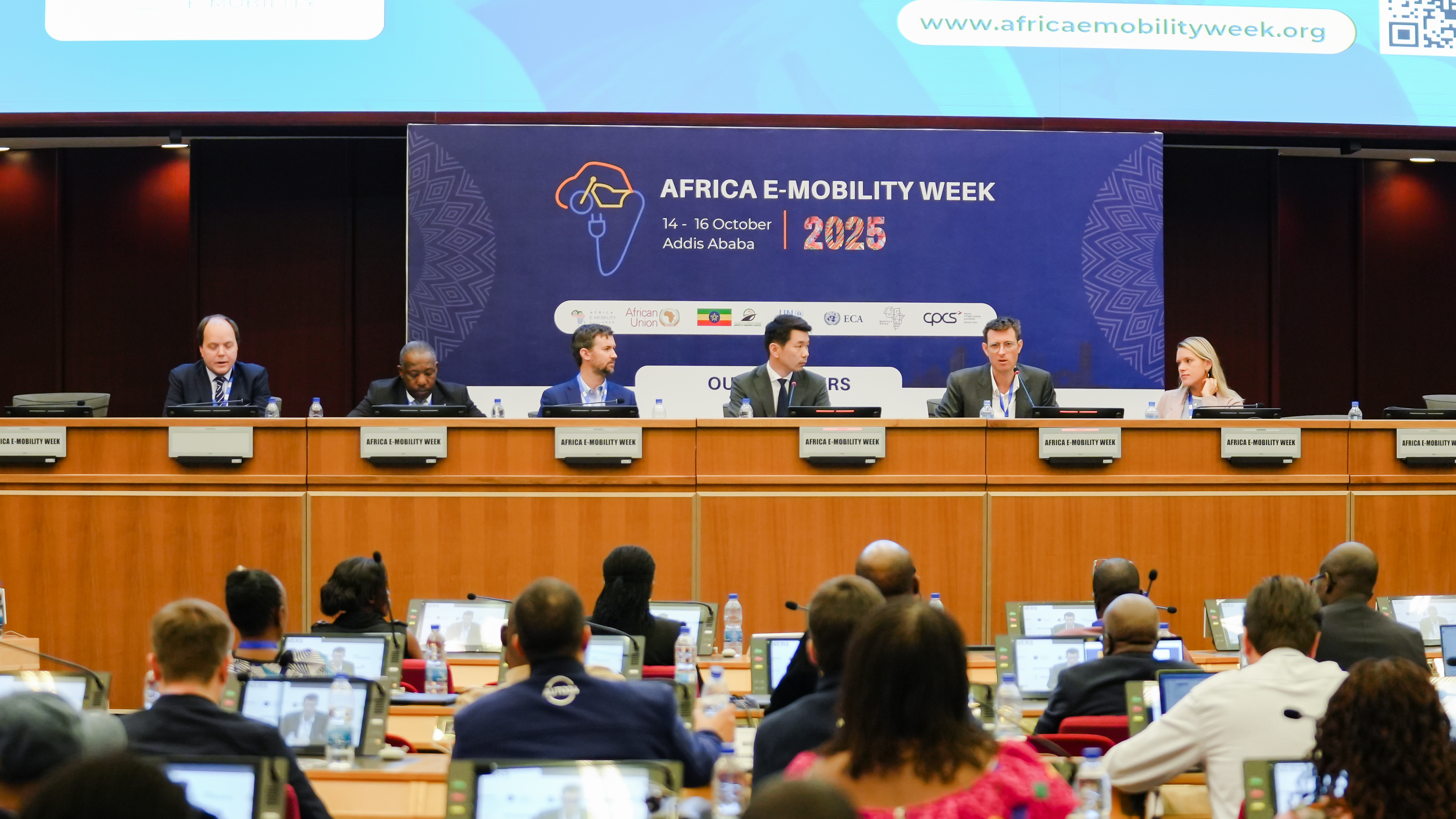
On-Site Visits to Key EV Facilities
During the visit, DFP visited major EV-related facilities in Addis Ababa, including EV assembly plants, government data centers, and charging infrastructure. While European participants were prominent at the conference level, Chinese EV companies displayed a particularly strong presence on the ground.
- AI-enabled EV unmanned charging stations operated by Ethio Telecom and Huawei (top left)
- EV bus charging facilities by Winline Technology (top right)
- EV minibus assembly plant by Golden Dragon (bottom left)
- Over 100,000 EVs in operation, including BYD vehicles (bottom right)
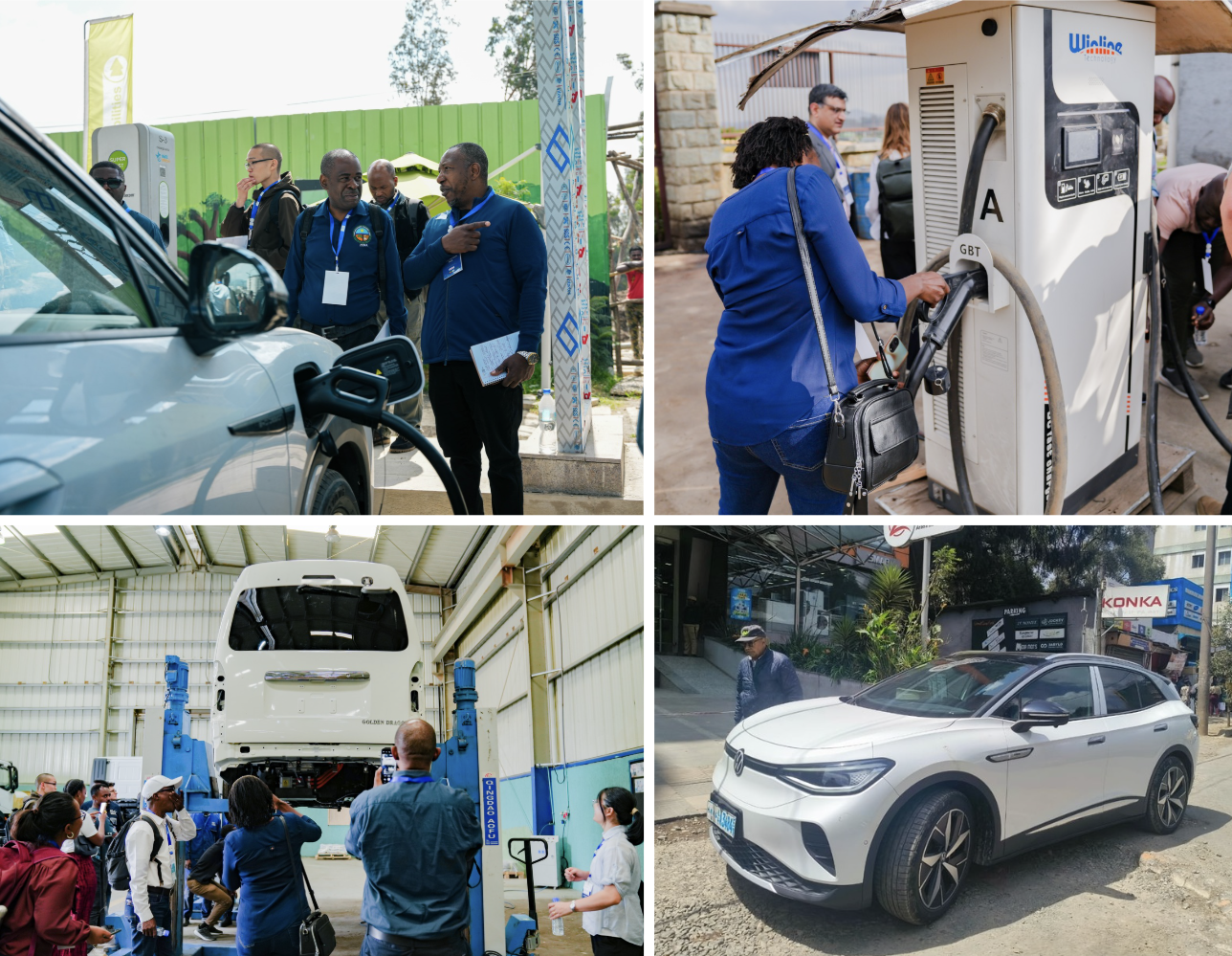
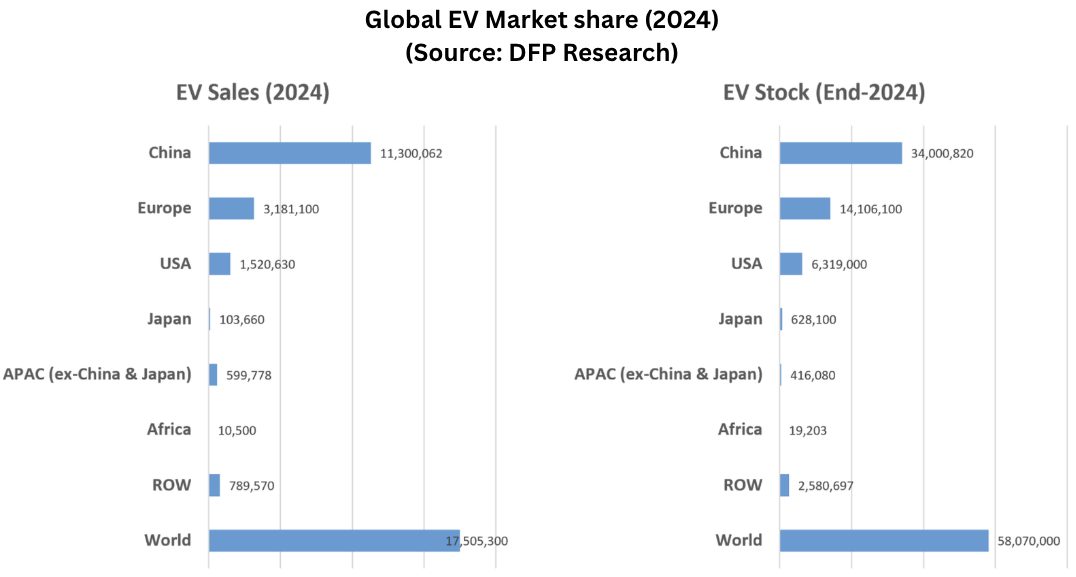
Ethiopia’s Bold Policy Approach
The development of EV infrastructure reflects Ethiopia’s positioning of EV adoption as a core national strategy. Concurrently, Addis Ababa is also experiencing rapid urbanization, with well-developed infrastructure and cityscapes reminiscent of European and Middle Eastern cities. Behind this rapid development, we also observed, through our interactions with locals, Ethiopia’s historical pride in avoiding colonial rule, as well as cultural values rooted in the Ethiopian Orthodox Church and Islam, which foster diligence and integrity.
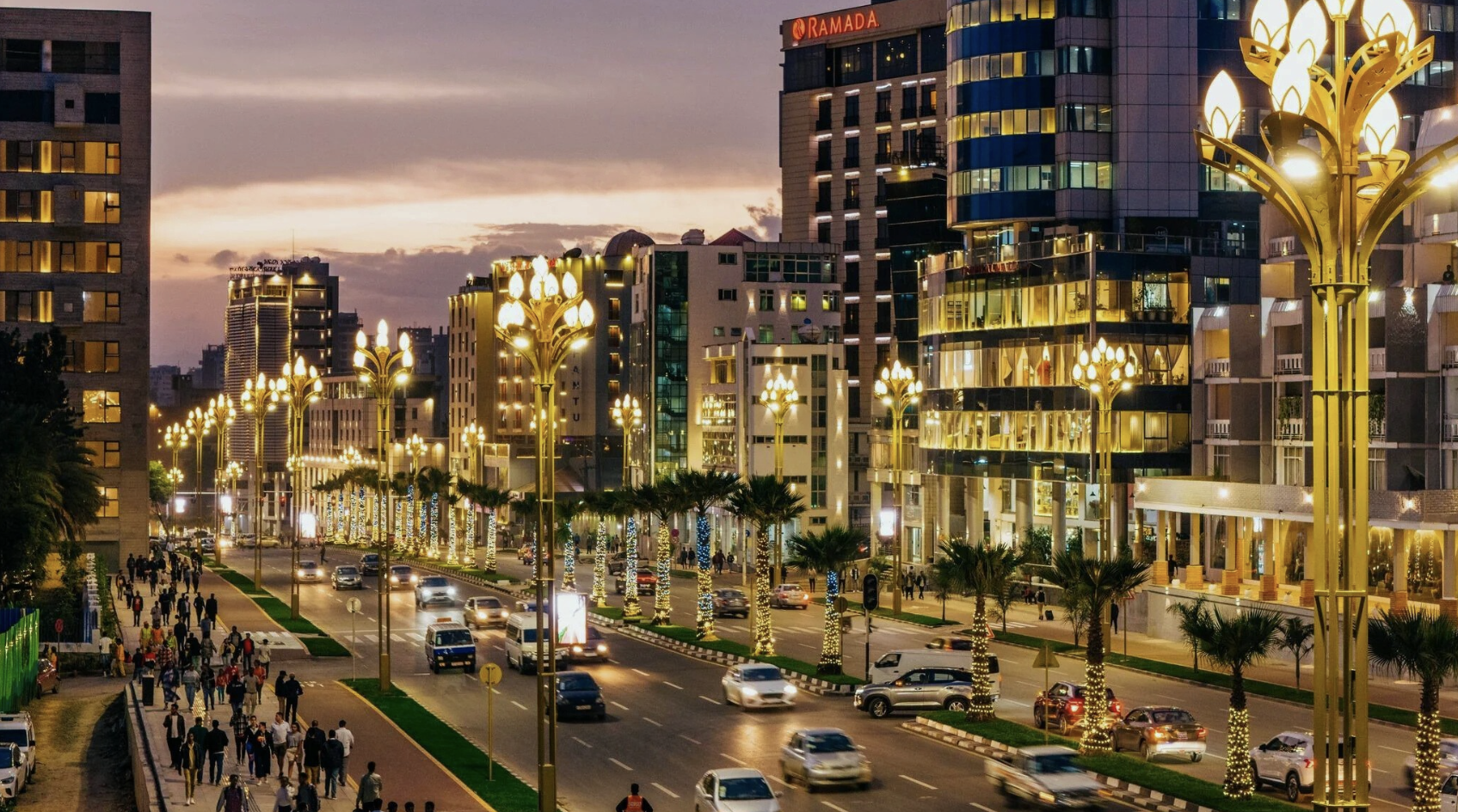
Implications
Although the African EV market remains immature, Chinese EV manufacturers are rapidly expanding their market share through low-cost, high-volume supply, which could drive significant structural changes in the automotive industry in Africa over the coming years.
Against this backdrop, Ms. Shinoda, General Manager of ITOCHU Corporation, Commercial Representative Office in Addis Ababa, emphasized concerns regarding the low safety standards of these vehicles and highlighted the market’s need for high-quality products that meet rigorous safety requirements. H.E. Shibata, Japan’s Ambassador to Ethiopia, also underscored the government’s awareness of the long-term risks associated with dependence on a single country—China.
These comments highlight the growing importance of value-added factors such as safety and quality standards. DFP is preparing a collaborative project with a Development Finance Institution to leverage our investment and advisory expertise. Through this initiative, we aim to connect global players and their technologies with local governments and innovative startups in Africa, supporting the sustainable development of the sector.
